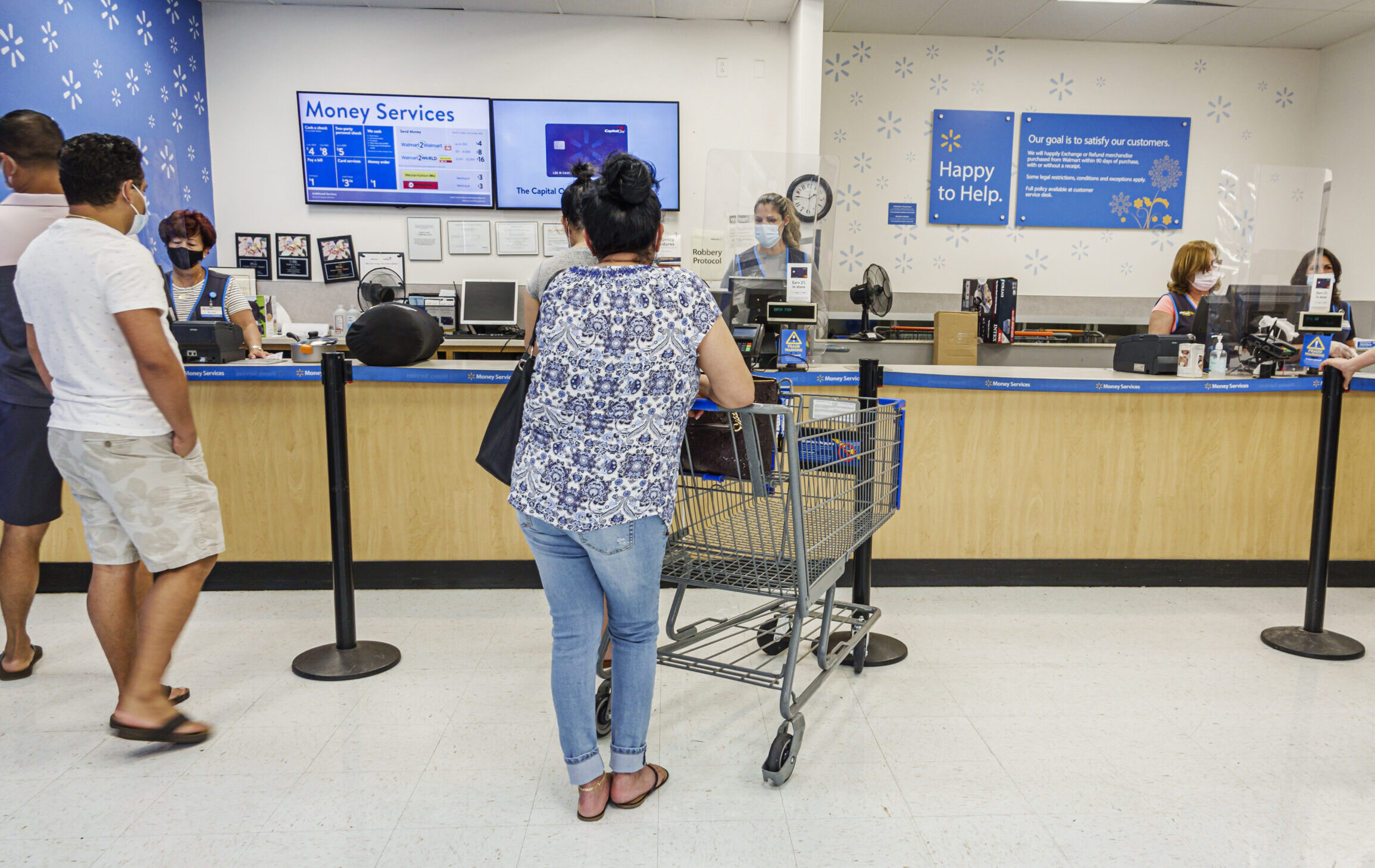Culture
Client service has actually worsened, and the pandemic alone is not to blame.

(Photo by: Jeffrey Greenberg/UCG/Universal Images Group by means of Getty Images)
“Customer Service Is in Decline” checked out a heading in 2015 from Barron’s“Customer experience is worsening,” reported the Wall Street Journal“Customer complete satisfaction in the U.S. is now at its least expensive level in 17 years,” stated the nationwide American Customer Satisfaction Index.
I can vouch for this, and I’m sure you can, too.
A couple of weeks ago I took my seven-year-old child to purchase brand-new baseball cleats at our regional sporting products shop. We ambled over to the athletic shoes area of the shop, not a single staff member in sight. Rather, there stood a kiosk. You input all your choices– shoe size, brand name, color– and ask for the shoes be given you. After a variety of failures (a number of brand names had absolutely nothing in my child’s size), we lastly discovered something. “Someone will be with you quickly!” the kiosk stated, prior to going back to the house screen.
5 minutes later on, a worker appeared, stated he could not discover that size, brought us one size smaller sized and one size bigger, and without delay vanished. Undoubtedly, neither of those cleat sizes fit. Wasn’t there anybody who could simply inform us if there were any brand names in my boy’s size? I discovered a set of kids’s cleats pushing the ground, thoughtlessly left outside a box. My child attempted them on; they appeared to fit OK, therefore choosing there was little usage in waiting to query the “know-how” of some missing worker, we headed for the sales register.
This is not what I keep in mind of purchasing athletic shoes when I was a kid.
I remember my moms and dads taking me to the shop, where we came across excited, offered staff members inquiring about shoe sizes. They would determine my feet (my narrow heel was constantly an issue), and provide my moms and dads a lot of choices for me to attempt. We constantly left sensation great about our purchase.
Those days are long gone. As are lots of comparable experiences related to taking care of the consumer. On a current cross-country flight, I recognized I could not purchase a meal (or a beer) due to the fact that they just accepted payment through the airline companies’ distinct app, which naturally I might not download as soon as we were in the air. Are companies so excited that I do not acquire their services?
At Forbes, Charlene Walters blames the issue on a reduction in human interaction that started throughout the pandemic, along with staffing scarcities. Provided the 2 examples I mention above, that is most likely real. Digital innovation offers clients the preliminary impression that they are getting the usual client service they are accustomed to anticipate, however likewise makes it possible for business to slash groups and expenses. Of course, the innovation frequently does not work– on my return cross-country flight, the plane’s WiFi service was out for many of the journey. Much for viewing films or tv programs on your individual, hand-held gadget!
The pandemic, with its resultant “contactless payments” so that we do not need to touch individuals’s unclean hands, breathe their unclean breath, and touch their filthy cash, definitely accelerated this pattern towards a more impersonal, faceless digital economy. Forbes was commenting on this down pattern in client service years prior to Covid-19: A 2019 short article kept in mind that “throughout the United States, there appears to be a stable decrease in the consumer service levels of almost every type of company.” And in 2017, Forrester included an interview entitled “The Decline Of Consumer Trust And What To Do About It.”
I would hypothesize that there is something else behind decreasing client service too: a concomitant decrease of a robust middle class.
In the last half-century, the middle class has actually significantly contracted, a pattern that promises to continue, specifically because of our significantly susceptible economy. Americans’ getting power is more or less comparable to what it was in the mid-1960s. Since in 2015, the typical American has actually lost the equivalent of about $4,200 in yearly earnings due to the fact that of inflation and greater rates of interest.
The connection in between a contracting middle class and a decrease in client service is this: People populating a healthy middle class in strong, robust neighborhoods, anticipate expert, prompt treatment from business who desire their cash. Those services are required to complete over consumers who desire an excellent item and who can “take their organization in other places.” And, when we are speaking about a strong, interconnected neighborhood, these middle class buyers can lodge problems about bad customer care that are most likely to impact organization choices.
On the other hand, in societies with little or non-existent middle classes, in which individuals are progressively atomized and confidential (so next-door neighbors are less most likely to understand an entrepreneur and personally grumble if he uses an inferior services or product), there is less factor for organizations to alter bad habits. In such societies, just the rich can pay for to patronize services who use employees who appreciate making sure consumers get the best item and are worried about preventing grievances.
Some of the nations with the worst client service are nations with a huge divide in between the haves and have nots, such as India, Vietnam, and Indonesia. One might quickly include those nations deemed to be the worst for company, such as Venezuela, Algeria, the Philippines, and Nigeria. Thailand, for instance, where I lived for 3 years, has infamously bad client service, regardless of its label as the “Land of a Thousand Smiles.” When I when attempted to return a set of trousers, the cashier took a look at me as if I had actually spat on the tomb of a dead relative and required me to wait up until every other consumer in the shop had actually been served. While attempting to purchase take-out over the phone, a cashier on the line shouted at me and hung up due to the fact that they were “too hectic.” Lodging grievances about such habits achieves little bit. Everybody simply smiles.
Thailand is likewise understood for its big earnings inequality. There is an extremely rich upper class connected to the royal household; a little, merchant middle class mostly focused in Bangkok and to a lower degree Chiang Mai, and a big underclass of impoverished Thais and financial migrants from somewhere else in Asia. Hence, for the majority of Thais, and even lots of expats, there is no option if you experience bad service at a dining establishment or store (unless it is owned by an expat). Take it or leave it,”ka,” as Thai services implicitly inform their customers.
Subscribe Today
Get weekly e-mails in your inbox
There is another element to the connection in between a diminishing middle class and decreasing customer support: a globalized economy, focusing on the cheapness of items, tends towards inferior items. Low-cost items, naturally, are made by low-cost labor. A number of the products in our houses are no longer made by middle class daddies of 3 in Youngstown, Ohio, Bakersfield, California, and even some town in post-war, Marshall Plan-rehabilitated Western Europe. Rather, those items are made by an impoverished guy or lady in a factory in a foreign province whose name you can not pronounce.
The business that offer you those items are not situated in the town in which you live, nor are they offered to you by your next-door neighbor or associate from church or PTA conferences. They are, in most cases, offered to you through a confidential, huge, online leviathan such as Amazon, whose ranking system undoubtedly benefits big business with overseas labor who can repair that system to benefit their mass-produced, foreign-made items. Sure, you might invest all the time composing bad evaluations on the pages for these items. It will not make a distinction.
As our society ends up being ever more depending on innovation, and our middle class continues to diminish, it is not likely that the unfavorable pattern in customer care will reverse. We are an individuals so socially separated from one another and business we count on that we have actually ended up being familiar with mediocre service. It is everything about performance, even if the outcomes are inferior items acquired online, or, ones we self-scan while a staff member more purchased his mobile phone than your shopping serves as “gatekeeper.” Has it truly been an enjoyment working with you?

